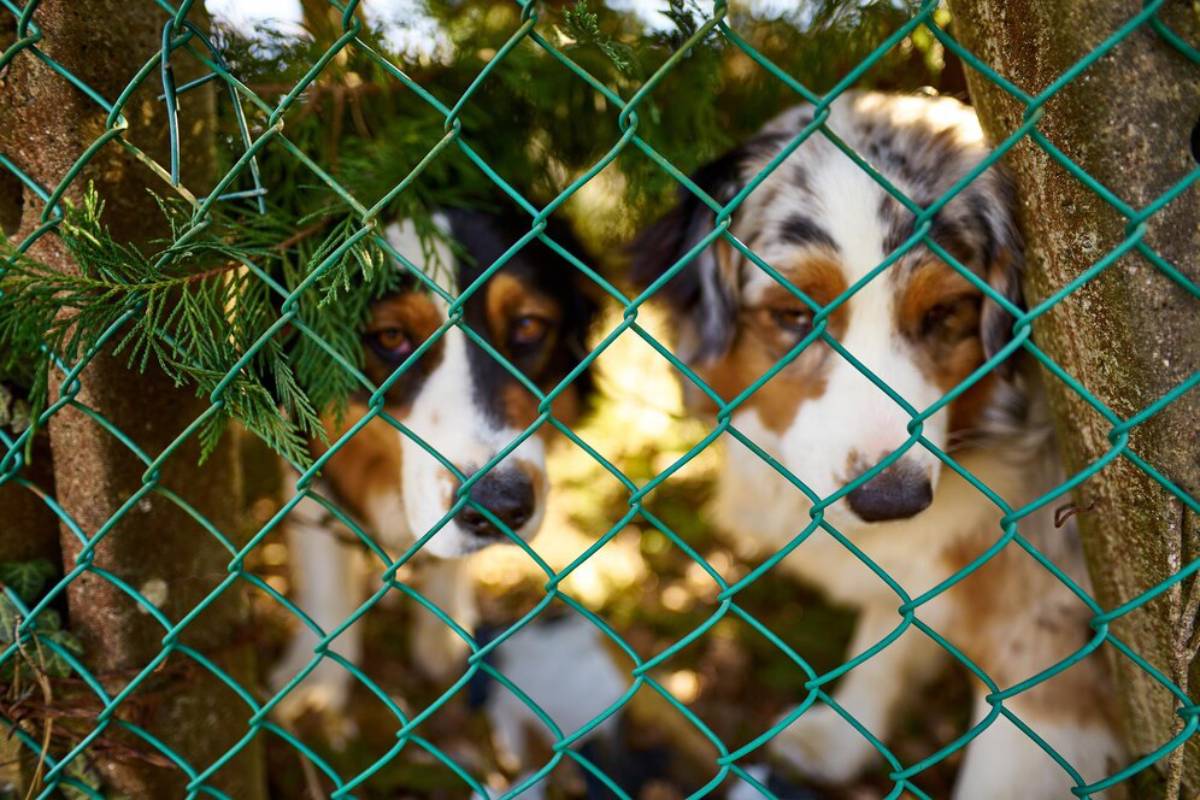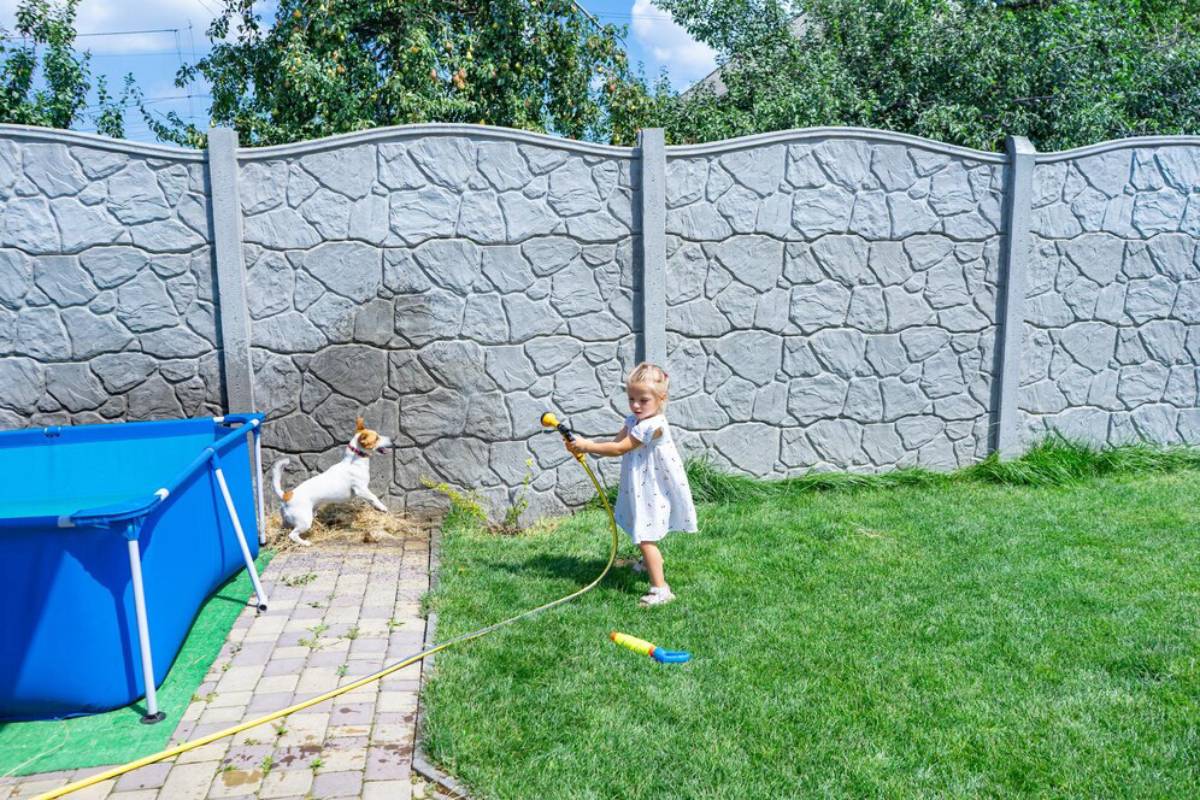
Pet-Proof Fencing Options for Your Garden
Keeping pets protected is always a top priority for pet owners. It can be tricky though to have an attractive pet-friendly garden! The good news is that with the right kind of pet-proof fencing you can have a beautiful and safe outdoor area for you and your pet. In this blog post, we will discuss fencing solutions that suit not only your pets’ requirements but also the aesthetics of your garden. From safe, animal-friendly fencing to pet-friendly and innovative enclosures, we’ll be covering everything you need to know for a pet-friendly garden.
Why Pet-Proof Fencing Matters
Fencing is key to keeping your pets safe and giving them outdoor freedom. It prevents them from wandering off or facing potential dangers. A good fence also protects your garden from your pets’ playful behavior, helping your plants stay intact.
When choosing pet-proof fencing, consider your pets’ specific needs. For example, a small dog may need different fencing than a large breed. If you have a cat, pick fencing that stops them from climbing over or squeezing through gaps.
Key Benefits of Pet-Proof Fencing
Investing in pet-proof fencing has many benefits for both your pets and your peace of mind. Here are some key advantages:
Safety and Security
The main benefit of pet-proof fencing is safety. A secure barrier keeps your pets from escaping and facing dangers like traffic or toxic plants.
Freedom and Independence

With a solid fence, pets can explore and play in your garden without constant supervision. This freedom is great for their mental and physical well-being, letting them engage in natural behaviours like running and digging.
Protection for Your Garden
Pets can be destructive when left unsupervised. Pet-proof fencing protects your plants, flower beds, and landscaping from being trampled or dug up.
Enhanced Aesthetic Appeal
Modern fencing comes in various styles and materials, allowing you to choose a design that matches your garden’s look. You can have both style and functionality for a pet-friendly garden.
Pet-Proof Fencing Options
There are several pet-proof fencing options, each with its advantages. Here are some popular choices to help you decide for your garden.
Wooden Fencing
Wooden fencing is a classic choice that offers a natural look. It can be customised in height, style, and finish to fit your needs. Ensure the slats are close enough together to stop small animals from squeezing through. Adding a protective treatment can enhance durability against weather.
Vinyl Fencing

Vinyl fencing is low-maintenance, durable, and attractive. It comes in various styles and colours, helping create a cohesive garden look. Vinyl is resistant to weather and pests, making it a long-lasting choice. Its smooth surface also makes it hard for pets to climb.
Chain Link Fencing
Chain link fencing is practical and cost-effective for pet-proofing your garden. It’s great for large areas where you need an affordable solution. While it may lack visual appeal, you can improve it with climbing plants or privacy slats. Make sure it’s tall enough to stop pets from jumping over and consider adding a bottom rail or burying it to prevent digging.
Invisible Fencing
Invisible fencing is an innovative solution that uses a buried wire and a collar on your pet. The collar emits a warning sound at the boundary, followed by a mild static correction if they continue. This option keeps your garden open and unobstructed but requires training. It may not suit pets with high prey drives or anxiety.
Additional Expert Tips & Common Mistakes to Avoid
When designing a pet-proof garden, keep these expert tips in mind:
Choose the Right Height
The height of your fence is key to preventing escapes. Think about your pets’ size and agility. A small dog might need a 1.2-meter fence, while a larger breed may require a 1.8-meter fence or higher.
Avoid Toxic Plants
Some common garden plants can harm pets if eaten. Keep your garden free from toxic plants like lilies, azaleas, and daffodils. Choose pet-friendly options like lavender, sunflowers, and roses instead.
Regular Maintenance
Check your fencing regularly for damage or wear. Fix gaps, loose panels, or broken sections quickly to keep your pets safe.
Provide Shade and Shelter
Make sure your garden has shaded areas where pets can rest and escape heat. This is especially important in summer when pets can overheat.
Advanced Insights & Expert Recommendations
For a truly pet-friendly garden, consider adding features like safe pathways, designated play areas, and water features. These can enhance your garden’s functionality and provide a stimulating environment for pets.
Pet-Friendly Pathways
Use pet-safe materials like gravel, bark, or non-toxic pavers for pathways. These are gentle on your pets’ paws and help guide them through the garden.
Designated Play Areas
Set aside a specific area for play and exercise. Include features like agility equipment, sandpits, or open spaces. This helps prevent damage to other parts of your garden.
Water Features
Add a pet-friendly pond or fountain for hydration and entertainment. Ensure the water feature is shallow and safe for pets to access.
Creating a Safe Haven for Your Pets
Make sure to keep your pets safe and healthy by producing a pet-proof garden. Choose fencing in your outdoor area for safety, and also incorporate items that are pet-appropriate. Be mindful of your pets’ needs and maintain fencing, both to keep them safe and to keep your garden looking nice.
Wood, vinyl, chain link, or invisible fencing. Each variety has specific advantages both in terms of your garden design and what your pets might require. Follow these tips and avoid common pitfalls. You can make a garden that is pet-friendly, attractive, and functional.
Take the next step in creating a safe haven for your pets. Enjoy the peace of mind knowing they can explore and play securely. Happy gardening!


